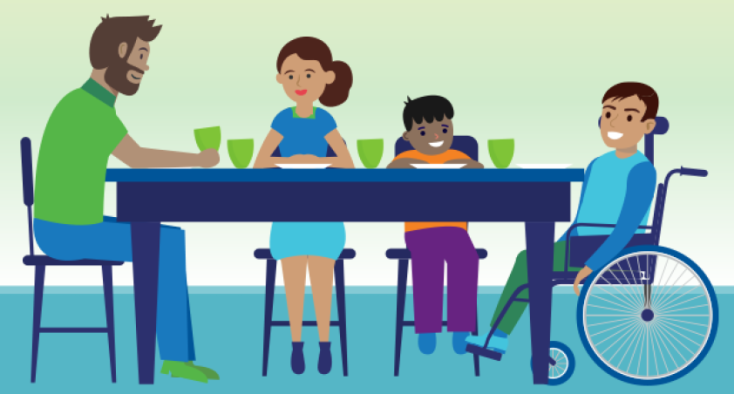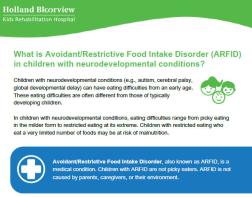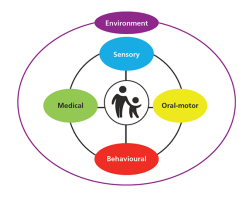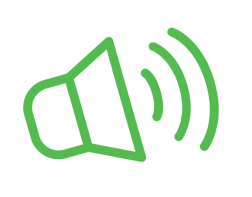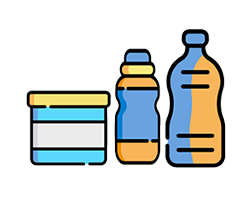*Please note, the clinic is not currently accepting external physician referrals.
The Neurodevelopmental Disorders Restrictive Eating Clinic is a new program dedicated to the assessment and treatment of severe restricted food intake including avoidant/restrictive food intake disorders (ARFID) for clients with neurodevelopmental disorders.
The model of care consists of an interdisciplinary assessment leading to individualized treatment plans to focus on behavioural skills training, coaching processes, consultation to community-based clinicians and/or parent education.
Program Criteria
- Age: Children between 2 and ≤12 years of age
- Live in Toronto, Ontario
- Children with a confirmed diagnosis of a neurodevelopmental disorders or children undergoing active assessment towards diagnosis.
- Food/Nutritional Intake:
- Diagnosis of ARFID OR
- Eating 10 or fewer foods. We will stratify food intake in two groups. High risk: Food
Intake < 5 foods. Moderate risk: Food Intake 5-10 foods OR - Nutritional Intake: Over half of energy requirements comes from nutritional supplement OR
- Over half of energy requirement is administered via tube feeding OR
- Hospitalization: History of hospitalization for nutritional rehabilitation or hydration
- Have identified issue in two or more areas of the MOBSE framework (Medical/Nutrition, Oral Motor, Behaviour, Sensory/Skills, Environment factors).
Exclusionary Criteria
- Do not have a suspected or identified swallowing safety concern
- Do not have suspected or identified anorexia nervosa or bulimia
- Neurotypical children
